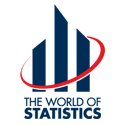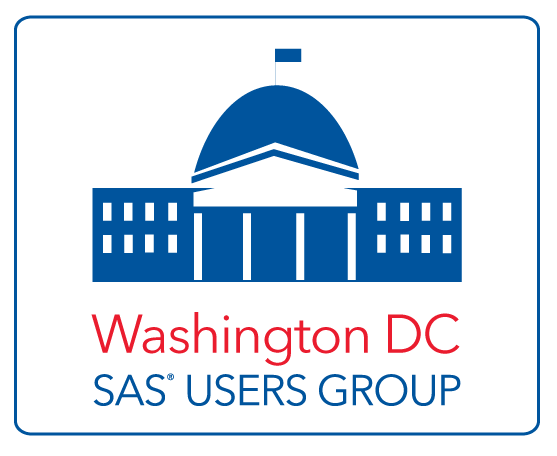June 2009
Contents:
- Annual Dinner
- Caucus for Women in Statistics Hosts Breakfast during Joint Statistical Meetings
- Seminars, Conferences, Symposia & Call For Papers:
- Workshop on How to Do Nonresponse Bias Analyses in Household and Establishment Surveys (June 10, 2009)
- Celebrating Forty-Five Years of Statistical Activity of Professor Joseph L. Gastwirth (Department of Statistics, George Washington University, August 1, 2009)
- National Health Interview Survey (NHIS) Data Users Workshop (August 7, 2009)
- The 17th Federal Forecasters Conference (FFC/2009) (September 24, 2009)
- Workshop for Transportation Forecasters (US DOT Bureau of Transportation Statistics, September 22-23, 2009)
- Upcoming Seminars
- Education Announcements:
- JPSM Summer Courses
- Students' Corner
- Short Courses (includes JPSM short courses)
- SIGSTAT Topics
- Employment Opportunities
- Note From The WSS NEWS Editor
- WSS People
- PDF Versions:
Newsletter
Area Meetings and Courses
Annual Dinner
This year's WSS Annual Dinner is at the La Tasca Spanish Tapas Bar & Restaurant in Washington, DC (Metro: Gallery Place station, Chinatown exit), Thursday, June 18, 2009. The Gertrude Cox Award winner is Dr. Jean Opsomer from Colorado State University. Dr Opsomer will speak at the dinner about sampling design. The price for the dinner is $40 person.
Please use this link to download the flyer.
Return to top
The 17th Federal Forecasters Conference (FFC/2009)
Thursday, September 24, 2009
Washington, DC
The conference theme is "Forecasting and Risk." The conference seeks to highlight how forecasters account for low-probability, but high-cost events. Participants will review how forecasters account for the following risks: economic risk, energy supply risk, food supply risk, health care and epidemic risk, transportation disruptions, and natural disasters. The conference will examine the role of federal forecasters in the evolution of public policies that account for these rare events. For more information, visit www.federalforecasters.org or contact Jeff Busse, 12201 Sunrise Valley Drive, MS988, Reston, VA 20192; (703)648-4914; jbusse@usgs.gov
For more info click here: www.federalforecasters.org
Return to topCaucus for Women in Statistics Hosts Breakfast during Joint Statistical Meetings
The Caucus forWomen in Statistics will host a breakfast on Monday, August 3 from 6:30 a.m. to 8:00 a.m. at the Embassy Suites at 900 10th St NW (located between I and K Streets) in Washington, DC. The breakfast is open to both members and non-members of the Caucus. You may come to the breakfast even if you are not attending the Joint Statistical Meetings. There will be the traditional roundtables with specific topics for discussion, as well as other tables with no specific topics of discussion. The meal will be the full breakfast buffet offered at Embassy Suites hotels.
Topics for the discussion roundtables (as of May 1) will be
- Work/Life Balance
- Negotiating Salary and Other Job Benefits
- Comparison of Statisticians' Jobs Across Different Settings
- Legal Rights and Wrongs in the Workplace
Additional roundtables may be added at a later date.
Cost is:
- Members--$13.00
- Non-Members--$15.00
- Full-time Students--$8.00
To reserve a place at the breakfast, email Anna Nevius at nevius@comcast.net by July 22, 2009.
For more information about the Caucus for Women in Statistics go to http://caucusforwomeninstatistics.com/.
Return to top
Workshop on How to Do Nonresponse Bias Analyses
in Household and Establishment Surveys
June 10, 2009
Bureau of Labor Statistics Conference Center
2 Massachusetts Avenue NE, Washington, DC
The Federal Committee on Statistical Methodology (FCSM) is sponsoring a one-day workshop designed to help Federal agencies meet the OMB guidance for conducting nonresponse bias analyses when surveys achieve response rates less than 80 percent. The workshop will feature illustrative examples of the research done by Federal agencies and their contractors to examine nonresponse bias in Federal surveys. The workshop is intended to provide a forum for agencies to learn and share experiences in conducting nonresponse bias analyses, with emphasis on the methodology, and each session will include time for floor discussion. A variety of techniques will be illustrated on different surveys, including Federal surveys of individuals, households, business establishments, farms, and educational institutions.
Research presented will include the examination of potential nonresponse bias by:
- Using data obtained from the survey frame or panel,
- Using data from response history,
- Benchmarking to external data and administrative records,
- Examining additional information obtained from a subsample of nonrespondents, and
- Evaluating different nonresponse weighting procedures.
In addition, some research will also be presented that compares two or more of these techniques and approaches to investigating potential nonresponse bias.
The workshop is targeted to:
- Individuals in Federal agencies who manage and conduct surveys;
- Federal statisticians, survey methodologists, and others who design, conduct, and evaluate surveys; and
- Individuals in universities, business and nonprofit organizations who are involved in the development, implementation or evaluation of Federal government surveys.
The workshop will assume a working knowledge of data collection methods in survey research. Examples will be presented and only rudimentary statistical knowledge of concepts such as bias and variance of estimates is required of participants.
Registration fee $95. Attendance is limited. The registration form is available at www.copafs.org/NRBiasReg.htm.
For further information/questions regarding registration, please contact:
Edward Spar or Lee Ann Sklar
Council of Professional Associations on Federal Statistics
2121 Eisenhower Avenue, Suite 200
Alexandria, Virginia 22314
Phone: 703-836-0404 Fax: 703-836-0406
E-mail: COPAFS@aol.com
2009 JPSM Summer Courses
For complete course information, please visit www.jpsm.org/jpsm/?courses/summer.htm.
Please visit www.testudo.umd.edu for the course schedule and to register for courses. Or the direct link:
http://www.sis.umd.edu/bin/soc?crs=SURV&sec=&term=200906&starthour=12&startmin=00&m=am&level=All¢er=0
The following classes are held in conjunction with the University of Michigan's Summer Institute in Survey Research Techniques. All classes are held at the University of Maryland, College Park campus.
SURV623 Data Collection Methods in Survey Research; (3 credits)
Grade Method: REG/AUD.
Review of alternative data collection methods used in surveys, concentrating on the impact these techniques have on the quality of survey data, including measurement error properties, levels of nonresponse and coverage error. Reviews of the literature on major mode comparisons (face-to-face interviewing, telephone survey and self-administered questionnaires), and alternative collection methods (diaries, administrative records, direct observation, etc.). The statistical and social science literatures on interviewer effects and nonresponse, and current advances in computer-assisted telephone interviewing (CATI), computer-assisted personal interviewing (CAPI), and other methods such as touchtone data entry (TDE) and voice recognition (VRE).
0101(21560) F. Conrad
Meets 06/01/09-06/26/09
MTuWThF... 1:00pm- 3:00pm (LEF 1208)
SURV625 Applied Sampling; (3 credits)
Grade Method: REG/AUD.
Prerequisite: statistics course approved by the department. Practical aspects of sample design. Topics include: probability sampling (including simple random, systematic, stratified, clustered, multistage and two-phase sampling methods), sampling with probabilities proportional to size, area sampling, telephone sampling, ratio estimation, sampling error estimation, frame problems, nonresponse, and cost factors.
0102(21570) J. Lepkowski
Meets 06/01/09-07/03/09
MTuWThF... 3:00pm- 5:00pm (LEF 1208)
SURV630 Questionnaire Design; (3 credits)
Grade Method: REG/AUD.
The stages of questionnaire design; developmental interviewing, question writing, question evaluation, pretesting, and questionnaire ordering and formatting. Reviews of the literature on questionnaire construction, the experimental literature on question effects, and the psychological literature on information processing. Examination of the diverse challenges posed by self versus proxy reporting and special attention is paid to the relationship between mode of administration and questionnaire design.
0101(21579) P. Campanelli
Meets 06/01/09-06/26/09
MTuWThF...10:30am-12:30pm (LEF 1208)
SURV699B Special Topics in Survey Methodology: Introduction to Survey Sampling; (1 credit)
Grade Method: REG/AUD.
0101(21610) R. Tourangeau
Meets 07/06/09-07/10/09
MTuWThF... 9:00am-12:00pm (LEF 1208)
SURV699D Special Topics in Survey Methodology: Introduction to Survey Quality; (1 credit) Grade
Method: REG/AUD.
0101(21611) P. Biemer
Meets 07/13/09-07/17/09
MTuWThF... 9:00am-12:00pm (LEF 1208)
SURV699F Special Topics in Survey Methodology: Psychology of Survey Response; (1 credit)
Grade Method: REG/AUD.
0101(21641) R. Tourangeau
Meets 07/06/09-07/10/09
MTuWThF... 1:00pm- 4:00pm (LEF 1218)
SURV699O Special Topics in Survey Methodology: Introduction to Survey Nonresponse; (1 credit)
Grade Method: REG/AUD.
0101(21652) STAFF
Meets 07/20/09-07/24/09
MTuWThF... 1:00pm- 4:00pm (LEF 1218)
Students' Corner
The end of the academic year has come. For many of us, that means summer vacation and a chanceto recuperate from a busy year. For others, it's time for uninterrupted research, studying, and internships.
Of course, some lucky graduates already have statistical jobs lined up.
Regardless of your plans, the summer offers a change of pace, often filled with playful moments.
To assist you in summer fun, I have scrambled eight statistical terms. I hope you will enjoy unscrambling them.
MOLNAR
NECNOCDIFE
LIBBYOTRAIP
MARNOD
MAPLES
ACIMOPSTTY
BURITTOSDINI
USSENC
Additionally, I have written a little haiku to help celebrate the hot summer months and spread good cheer.
Numbers in the heat.
Summertime stats students count.
Awaiting next Fall.
If you are inspirited this month to write a haiku or short poem about a statistical topic, please send it to me and I'll try to print it in the next student corner.
Tim Kennel (tkennel@survey.umd.edu)
Return to topSIGSTAT Topics
May 20, 2009: GeoDA - Part 5
(https://www.geoda.uiuc.edu/)
GeoDa is the latest incarnation in a long line of software tools developed by Dr. Luc Anselin's Spatial Analysis Laboratory (SAL) in the Department of Geography at the University of Illinois, Urbana-Champaign. It is designed to implement techniques for exploratory spatial data analysis (ESDA) on lattice data (points and polygons). The free program provides a user friendly and graphical interface to methods of descriptive spatial data analysis, such as spatial autocorrelation statistics, as well as basic spatial regression functionality. The latest version contains several new features such as a cartogram, a refined map movie, parallel coordinate plot, 3D visualization, conditional plots (and maps) and spatial regression.
Continuing the April discussion, this month will cover: Bivariate Spatial Autocorrelation, Regression Basics, Regression Diagnostics, Spatial Lag Model, and Spatial Error Model
SIGSTAT is the Special Interest Group in Statistics for the CPCUG, the Capital PC User Group, and WINFORMS, the Washington Institute for Operations Research Service and Management Science.
All meetings are in Room S3031, 1800 M St, NW from 12:00 to 1:00. Enter the South Tower & take the elevator to the 3rd floor to check in at the guard's desk.
First-time attendees should contact Charlie Hallahan, 202-694-5051, hallahan@ers.usda.gov, and leave their name. Directions to the building & many links of statistical interest can be found at the SIGSTAT website, http://www.cpcug.org/user/sigstat/.
Return to topNote From The WSS NEWS Editor
Items for publication in the Summer issue of the WSS NEWS should be submitted no later than June 10, 2009. E-mail items to Michael Feil at michael.feil@usda.gov.
Return to topClick here to see the WSS Board Listing (pdf)
Return to top






